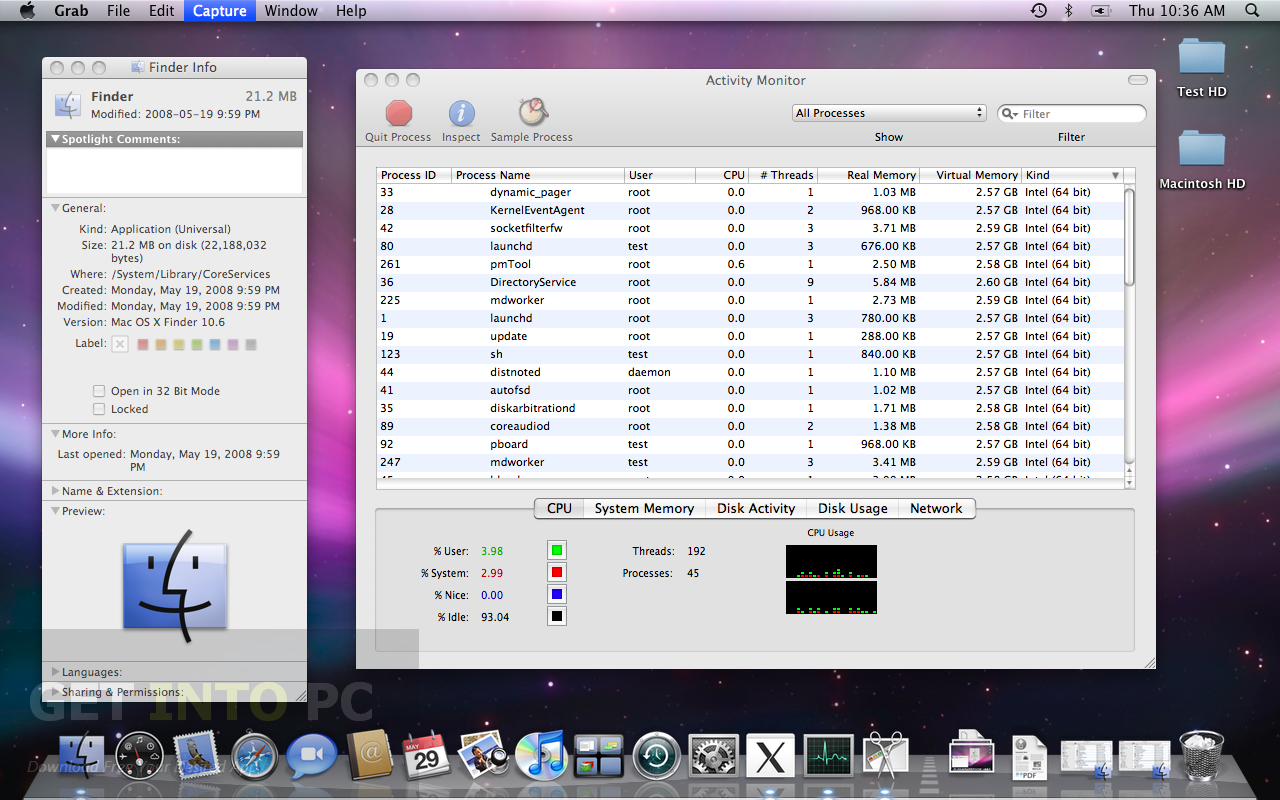Here you can get download links for macOS Old and Latest Releases. Previously macOS was called as OS X or Mac OS X.
If your Mac is operating at a slow pace, then for that reason alone it is worth the upgrade to OS X 10.6 Snow Leopard. As far as developers are concerned, the integration of Grand Central, OpenCL and a 64 bit kernel will allow you to take full advantage of the dual processing power of Intel Macs. Download Mac OS X Leopard 10.5 latest version standalone offline setup DVD ISO image. Mac OS X Leopard 10.5 Review Apple is continuously increasing the stability and the security of the Mac OS X. Mac OS X 10.5 Leopard is a very reliable operating system, providing a lightweight environment with a sleek and user-friendly interface to handle all.
These links are helpful when
- You do not have access to internet on your main computer.
- You want to download macOS from Windows or Linux OS.
- You want to download macOS without AppStore
1Download Mac OS X Snow Leopard
Mac OS X Snow Leopard (version 10.6) is the seventh major release of Mac OS X (now named macOS), Apple’s desktop and server operating system for Macintosh computers.
2Download Mac OS X Lion
Mac OS X Lion (version 10.7) is the eighth major release of Mac OS X (now named macOS), Apple’s desktop and server operating system for Macintosh computers.
3Download OS X Mountain Lion
Mac OS X Mountain Lion (version 10.8) is the nineth major release of Mac OS X (now named macOS), Apple’s desktop and server operating system for Macintosh computers. OS X Mountain Lion brings a lot of great things from iPhone, iPad, and iPod touch to the Mac. You can send iMessages. Get your Mac in on Game Center. Receive notifications. And more. And with iCloud, now your Mac works even better with your iOS devices.
4Download OS X Mavericks
OS X Mavericks (version 10.9) is the tenth major release of Mac OS X (now named macOS), Apple’s desktop and server operating system for Macintosh computers. OSX Mavericks is an impressive operating system which has come up with lots of new features and updates. With OSX Mavericks you can now take the whole world on your desktop. You can easily look up for different directions and then finally send them to iPhone for recognition of your voice. You can get local points of interests like photos, restaurants with phone numbers etc.
5Download OS X Yosemite
Mac OS X Yosemite (version 10.10) is the eighth major release of Mac OS X (now named macOS), Apple’s desktop and server operating system for Macintosh computers.
6Download OS X EL Capitan
OS X El Capitan (version 10.11) is the twelfth major release of OS X (now named macOS), Apple Inc.’s desktop and server operating system for Macintosh computers. It is the successor to OS X Yosemite and focuses mainly on performance, stability, and security. Following the Northern California landmark-based naming scheme introduced with OS X Mavericks, El Capitan was named after a rock formation in Yosemite National Park, signifying its goal to be a refined version of Yosemite. El Capitan is the final version to be released under the name OS X; its successor, Sierra, was announced as macOS Sierra.
7Download macOS Sierra
macOS Sierra (version 10.12) is the thirteenth major release of macOS (previously OS X), Apple Inc’s desktop and server operating system for Macintosh computers. The successor to OS X El Capitan, it is the first version of the operating system issued under the June 2016 rebranding as macOS. Sierra is named after California’s Sierra Nevada mountain range. The mountain in the default desktop picture is Lone Pine Peak . Its major new features concern Continuity , iCloud , and windowing, as well as support for Apple Pay and Siri .
Mac Leopard 10.5 Free Download

8Download macOS High Sierra
Mac Os X 10.5 Leopard
macOS High Sierra (version 10.13) is the fourteenth major release of macOS, Apple Inc.’s desktop and server operating system for Macintosh computers. The successor to macOS Sierra, it was announced at WWDC 2017 on June 5, 2017.
9Download macOS Mojave
macOS Mojave (version 10.14) is the fifteenth major release of macOS, Apple Inc’s desktop operating system for Macintosh computers. The successor to macOS High Sierra, it was announced at WWDC 2018 on June 4, 2018. It brings several iOS apps to the desktop including Apple News, Voice Memos, and Home introduces a Dark Mode and is the final version of macOS to support 32-bit apps.
10Download macOS Catalina

macOS Catalina (version 10.15) is the sixteenth major release of macOS, Apple’s desktop operating system for Macintosh computers. It is the successor to macOS Mojave and was announced at WWDC 2019 on June 3, 2019. Catalina is the first version of macOS to exclusively support 64-bit applications.